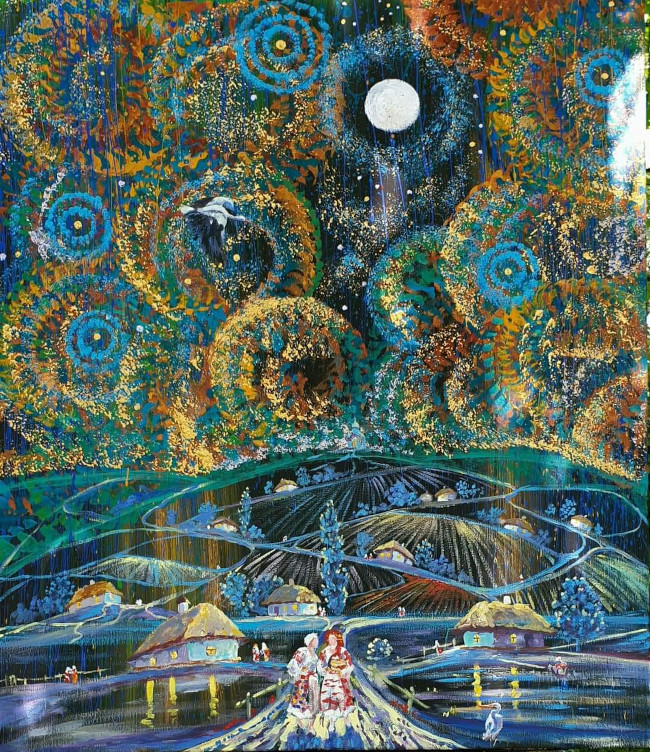Day 29 : Monday 27 March
Hear our voice, O Lord, according to your faithful love.
Lectionary readings (Click the links to see the readings):
| Susanna 41-62 | Psalm 23 | John 8.1-11 |

Yurii Nagulko
Glory to God in the Highest - Слава во Вишніх Богу. Axios Men’s Ensemble. St Josephat Ukrainian Catholic Cathedral, 2017.
from: Rowan Williams, “Sinners.” In Joan Chittister and Rowan Williams. Uncommon Gratitude: Alleluia for All That Is. Collegeville: Liturgical Press, 2014.
Alleluiah for Sinners.
Well, for one thing, there are a lot of us around. . . . But yes; it probably does sound pretty strange to suggest that we ought to be saying alleluia for the existence of people whose lives are in contradiction to the purpose and direction of the universe as its maker intends it. That, after all, is what sin is. It isn’t some sort of high drama Satanic defiance, shaking your fists at the lightning. It isn’t even exciting naughtiness. It’s just the condition of being seriously wrong about reality and living against the grain. The committed sinner is the equivalent of the person who is convinced that you can make trains run on black coffee and is determined to go on trying, however much the evidence stacks up in favour of the more usual options. Sin is therefore bound to be, in the long run, deeply frustrating and, objectively speaking, very boring indeed. And on this basis, if you think about the devil, don’t think of him as some heroic defender of moral liberty, but as a being tragically and pathetically locked up in delusions.
Now it’s perfectly true that there’s nothing to give thanks for about being wrong. But when someone says that they’re a sinner, what they’re saying is that they’ve noticed something is wrong. They have become an uncommitted sinner, to the extent that they know the world is bigger than their mistakes. It may not yet be clear how to get out of this situation, or even how to say anything clear or coherent about what’s right; but it matters just to have some sense of incongruity between what’s going on in your life and some overarching reality. It means that we haven’t successfully got ourselves used to lying; and that is no small thing.
To say alleluia for sinners is to say alleluia for the beginnings of honesty. So much conspires to keep us more familiar with fantasy than truth. Take the immense energies devoted to promising technological solutions to human problems and the confidence with which we’re still told that our current Western lifestyle is sustainable——the message that, in one way or another, every advertising campaign and every political campaign sets out to convey. Yet the obstinate suspicion is still around that we live in an environment of limited resource, that the degradation of that environment is more and more in evidence. A growing number of people are aware of an unreality, an incongruity, somewhere; they are, in Christian terms, waking up to being sinners. They’re stuck with something they didn’t choose or didn’t know they’d chosen, and it feels false.
It isn’t quite how religious people always use the term, granted. But if we forget for a moment the individualised and sometimes trivialised ways in which this language has been used and go back to the world of the Bible and the early traditions, we might see more clearly the importance of this central notion of being at odds with reality. . . .
(Continues on Day 30, tomorrow.)
May God our Redeemer show us compassion and love. Amen.